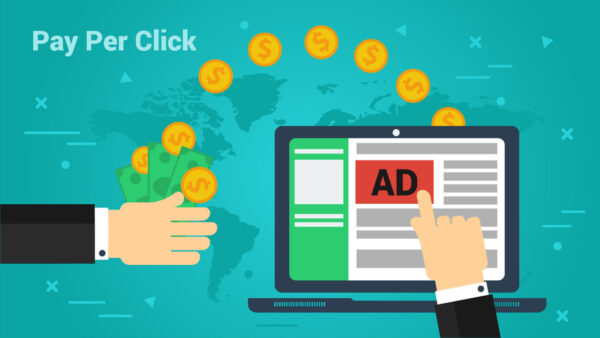What Is PPC? Learn the Basics of Pay-Per-Click (PPC) Marketing
As a business owner or marketing decision-maker, you’re likely always looking for new ways to reach and engage your target audience. One popular method many businesses utilize is pay-per-click (PPC) marketing. But what exactly is PPC? How does it work? And is it right for your business? Let’s take a closer look at the basics of this type of digital marketing.
What is PPC marketing and how does it work?
PPC (Pay Per Click) marketing is a type of digital advertising that businesses use to drive more traffic to their website and increase conversions. It works by allowing marketers to create targeted ad campaigns, where they are able to bid on specific keywords related to their industry. They will only be charged when their ad receives an impression or click from potential customers, making it an all-around efficient and cost-effective way to reach consumers searching the web. With specialized PPC management software, marketers can gain access to detailed analytics and reports so they can accurately measure their ROI and adjust strategies as needed. In today’s digital landscape, PPC marketing has become a necessary tool for long-term growth in any business.
The Benefits of PPC Marketing for Businesses
PPC marketing, also known as Pay Per Click, is one of the most effective marketing strategies for businesses. This type of online advertising allows businesses to target potential customers searching for their products or services. It allows them to place ads directly in front of the key audiences that are actively looking for what they have to offer. Additionally, PPC campaigns can be tailored with extensive targeting capabilities while allowing businesses to measure exactly what they get out of each ad dollar spent; providing more bang for your buck! With strategic and targeted campaigns, businesses can drive interested traffic quickly which greatly enhances reach and impact in a very cost-effective way.
The Different Types of PPC Campaigns
Pay-Per-Click (PPC) campaigns offer an incredible way to increase brand visibility and generate leads, so it’s no surprise that they are growing in popularity. With search engine text ads, display ads, social media ads, remarketing campaigns, and shopping campaigns all available to businesses who invest in PPC marketing, there is sure to be an approach that works perfectly for your company’s needs. Each type of PPC campaign has its pros and cons based on the industry and platform you select, so it’s best to sit down with an expert who can help guide you in the right direction. The opportunities available with the different types of PPC campaigns makes them an essential part of any strategic digital marketing plan.
General Tips When Building A Successful PPC Campaign
If you’re looking to maximize return on investment with your pay-per-click (PPC) campaign, there are several essential steps that should be taken to ensure a successful outcome. First, define the goals of your PPC campaign: ask yourself what you want to achieve and how you’ll measure success. Next, you’ll want to create a comprehensive keyword list based on what users are searching for in relation to your product or service. This will help you drive relevant traffic and create a more efficient campaign overall. Additionally, utilize A/B testing when it comes to crafting different ad variations and landing page experiences; this will keep your campaigns up-to-date and optimized in order to have the highest possible conversion rates. Finally, establish regular tracking and analysis practices; this helps to ensure that your campaigns remain efficient and informed by data rather than speculation. By following these tips, your PPC campaign will surely be on its way towards success!
Tips for Ongoing Optimization of your PPC Campaigns
If you want to ensure that your PPC campaigns are always running their best, it’s important to commit yourself to ongoing optimization. The strategies and tactics that got you this far may not be the same things that drive success even just a few months from now, so you will need to stay on top of changes as they arise. Some tips for continuing optimization include attempting to understand consumer behavior, experimenting with different methods for targeting, and creating diverse campaigns for testing purposes. With commitment and dedication, your PPC campaigns can continue to reach success over a long-term basis.
Be Flexible as Trends can Shift Quickly
Flexibility is key in the world today. Adjusting to the quickly shifting trends of today’s constantly evolving consumer and business landscapes requires agility and foresight. Having a mindset that can adjust quickly to changes in the marketplace is essential for any organization or individual hoping to stay competitive. This means not only understanding what trends are popular now, but also anticipating which ones may become popular in the near future. By staying on top of shifting trends and being open to change, businesses can have an edge over competitors who have a more rigid approach to their strategies. As trends aren’t constant, part of success lies in being able to recognize when it’s time to switch gears and pivot accordingly.
Pay-Per-Click in Summary
If you want to be successful with your PPC marketing campaigns, it is important to understand how it works and what the different types of campaigns are. There are many benefits to running a PPC campaign, but businesses need to make sure they are well-prepared before starting one. With these general tips in mind, you should be on your way to building a successful campaign that will help grow your business!
Or Hire an Award Winning Team
For more personalized tips or help getting started, contact our team at htmull.com. We’re in business to grow yours!
Did you enjoy this newsletter?
You can expect a new one each week and access our monthly free articles on htmull.com. If you haven’t already, subscribe now to receive marketing, web design, SEO, sales, branding, and other business growth content.



